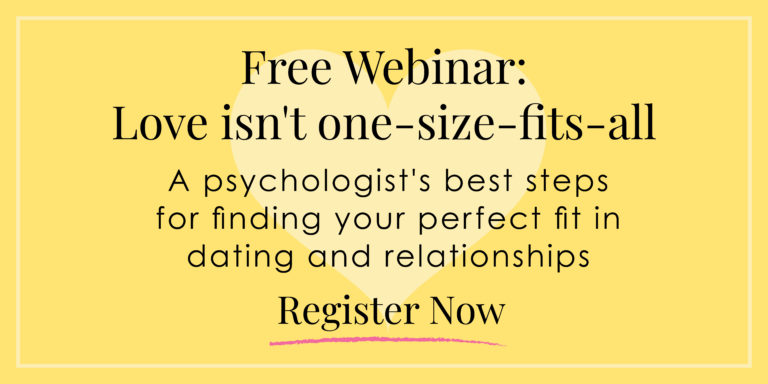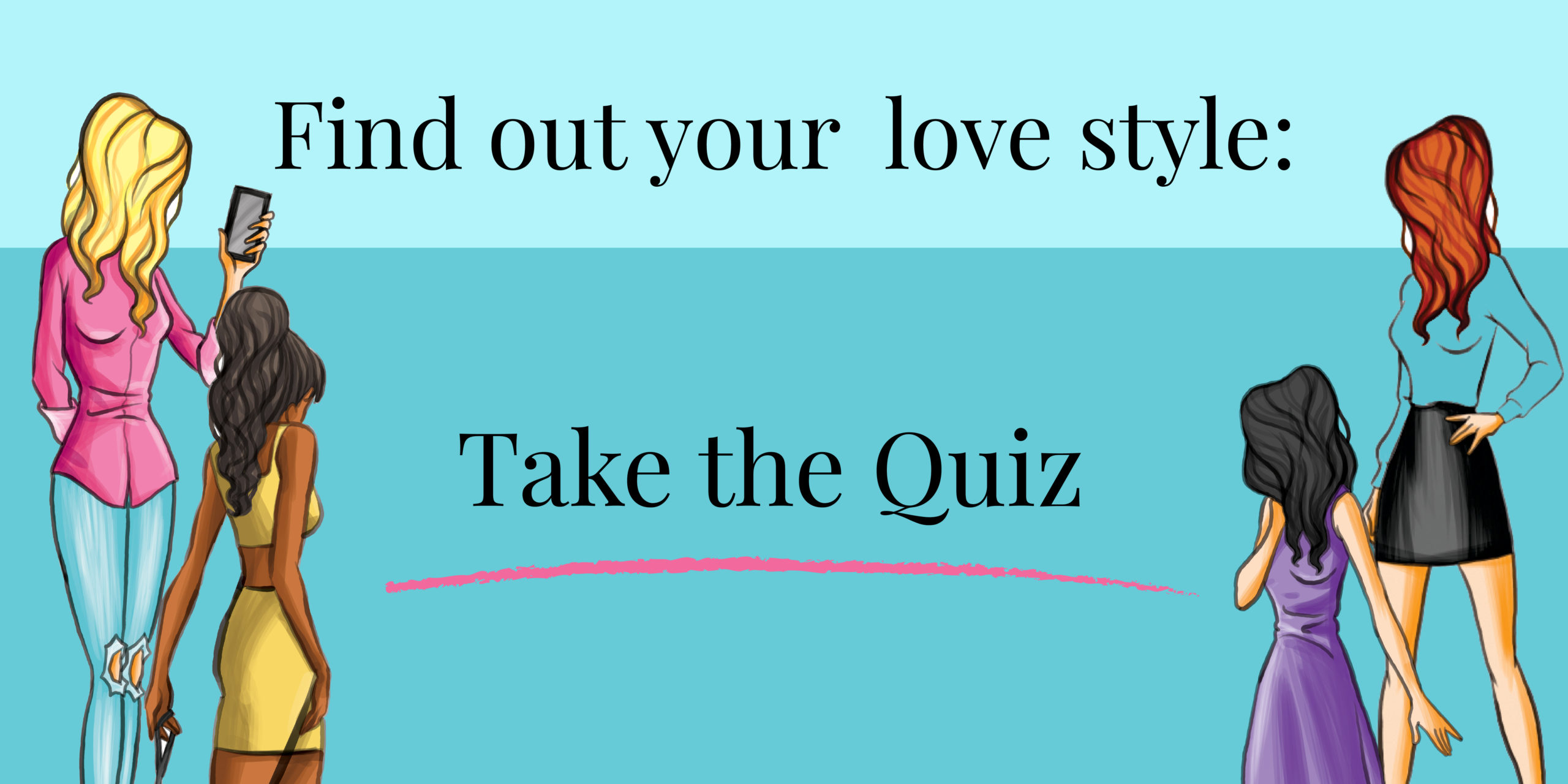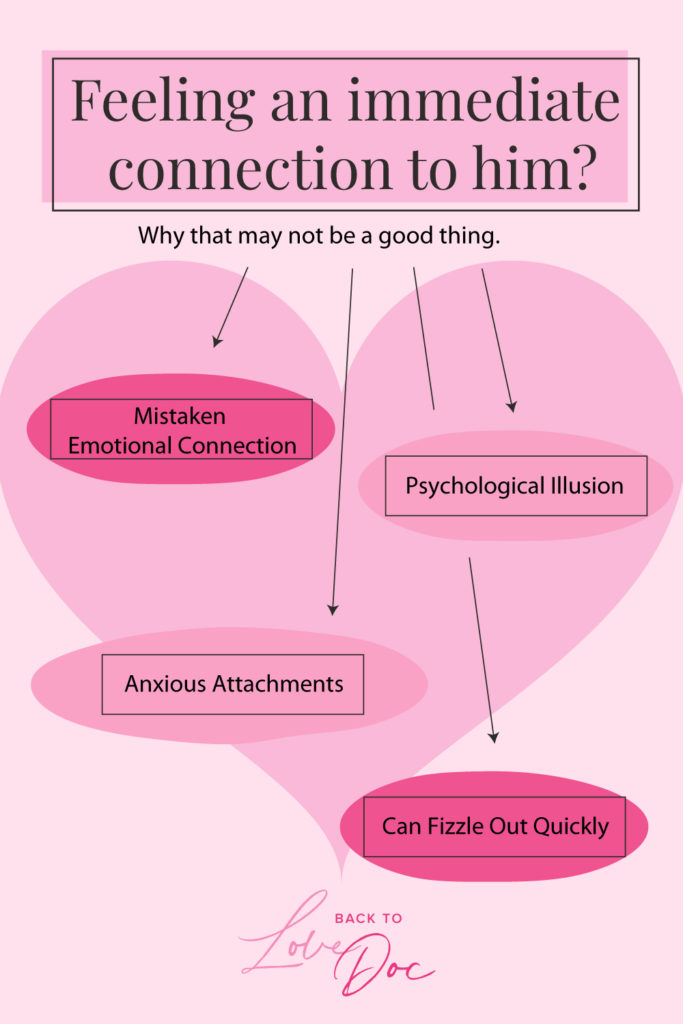You know that moment when sparks fly? You make eye contact, and without a word, you can sense a connection forming between the two of you. You feel butterflies in your stomach, and your heart beats a little faster. Call it gut instinct or love at first sight. It’s a pretty amazing feeling. Surely that’s a good sign… right?
Well, it can be, but it isn’t always.
What Is Love At First Sight?
According to research, there are a lot of people who believe that love at first sight is real.
Does it exist? Sure! There are a handful of scientific reasons that could explain the phenomenon of love at first sight. The first is a common chemical reaction occurring within the brain. Your brain may release serotonin and dopamine, the feel-good hormones, and you may associate those warm fuzzies with the person you’re looking at. This chemical reaction may lead you to form a fast connection with the individual in question. If your brain senses that the feeling is being returned by the object of your affection, boom! Instant connection.
It could also be a case of instant attraction (aka lust) mistaken for an emotional connection. There’s even a positive psychological illusion that tricks partners into remembering “love at first sight” because of the relationship they’ve developed over time, but this usually applies to long-term relationships.
The thing is, chemical reactions in your brain aren’t indicative of good character or compatibility. And to make matters worse, love at first sight and instant connection are tropes that are regularly imposed on us by Hollywood and the media. We see it all the time in rom-coms. The attractive leads spot each other from across the room, and their gaze lingers for a long moment. There’s no question in our minds that this will be the couple that gets together at the end. (And then they do. Cue the swelling romantic orchestra music.)
Unfortunately, real life is not a Hollywood rom-com. While instant connection and love at first sight (whatever that even means) are definitely real, they’re probably not the best way to select a long-term partner.
Making Connections
Nervous Noras are especially prone to this quick attachment. The connection feels real, and in the moment, that can be incredibly powerful and persuasive for Nora. While the chemicals that produce the sensation are undoubtedly genuine, they’re not an indicator that the connection is good, healthy, or that it will last long-term.
Nervous Noras tend to have an anxious attachment style, which leads them to become very invested in someone very quickly. When Nora falls, she falls hard. And while the attachment may be intense and passionate right off that bat, that instant connection can sometimes trick us into thinking that the feeling can—and should—last.
But this is often not the case at all. Sometimes, these instant connections can lead to flings, which burn hot and fizzle out quickly. (Not knocking it, some people like flings!) But it can also pull a Nervous Nora into a negative pattern of dating behaviors. She may become attached quickly, thriving on the instant connection, validation, and attention it provides, but when it doesn’t work out, she may begin to wonder why she constantly falls for “bad” men. It becomes a cycle, one which can damage her self-esteem, confidence, and emotional stability.
As we’ve discussed previously, Nervous Noras are prone to anxiety, overthinking, and fast-and-hard emotional attachments. While her brain may release feel-good chemicals when looking at a date, that hormonal reaction comes from the same brain that produces maladaptive connections with prospective partners. Her brain is telling her what she wants to hear.
But what Nervous Nora needs to hear is this: gut instincts, instant connections, and love at first sight does not a life-long romance make. I can teach you how to train your brain, make healthy connections, and become happy and confident within yourself. Sign up for my Nervous Nora dating course and begin your journey today.
Dating is hard! But if you are a Nervous Nora or Nick, it’s easy to question and second-guess every little thing. Just know that you’re not alone. If you feel that your attachment style is giving you grief, there are strategies you can apply that will open up new doors to happiness.
Take our Love Styles Quiz to find out more about what makes you tick. And when you are ready to break up with anxiety and move on from overthinking, try one of our online courses and break out of the cycle.





